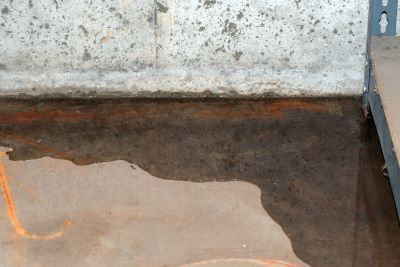Regardless of how water is accessing your property, dealing with a wet basement isn’t easy. Therefore, preventing water from accessing the basement is vital, or you’ll be staring at costly clean-up and repairs.
Fortunately, keeping your basement dry and healthy doesn’t require a genius mind. With simple tips, you can keep the water away from the foundation, preventing it from accessing the basement.
However, suppose the water has already accessed the foundation and is seeping into your basement. In that case, you might need to hire experts trained in drying the water in the basement and performing necessary repairs. If this is your case or you need professional help waterproofing your basement, click here to learn more about how professionals can help. Meanwhile, here’s how you can keep your basement dry and healthy.
- Prevent Water From Accessing The Foundation
Water accesses your basement by seeping in along the foundation. Fortunately, your property has some features that prevent this from happening. Nevertheless, these features require maintenance to perform optimally.
Among the features that prevent water from accessing your foundation are gutters and downspouts. These features should always be in good condition, lest they fail to perform their duty.
The first step towards ensuring the gutters and downspouts are in good shape is to clean them regularly. If left unattended, they’re likely to get clogged and prevent water from flowing away from the foundation. In such an event, water will begin to spill over your property, saturate your foundation, and seep into the basement.
With that in mind, you should always check if the gutters are cracked or clogged. If you discover cracks, hire a professional plumber to repair or replace them. If clogging is the issue, clean them to facilitate smooth water flow away from your foundation.

- Attend To Your Landscape
Your landscape can also cause water to accumulate around the foundation, resulting in a wet and humid basement. Therefore, the water should be directed down the slope to prevent it from getting around the foundation.
Examining the foundation walls during heavy rains is advisable in determining if your landscape is the culprit to your humid basement. If the water accumulates around the foundation instead of flowing away, the landscape might require a quick touch-up to correct the issue. Among the things that can prevent water from pooling around the basement include filling areas encouraging water to accumulate, and surrounding the foundation with tiny rocks that can absorb extra moisture.
- Insulate Cold Plumbing
Many homeowners insulate pipes to prevent them from freezing and reduce heat loss. However, there’s another reason why insulating water pipes is important. Insulated water pipes are less likely to sweat; hence they’re unlikely to cause wetness.
On hot days, cold water pipes experience condensation. Once these pipes have sweat, the moisture contributes to wetness in your basement, especially if the sweat drips.
Foam insulation is easy to install and cheap. This foam prevents sweat from dripping in your basement. In winter, the insulation can also prevent drafts that can freeze the pipes.
- Work On Ventilation
Does your basement have a bathroom? If yes, it’s likely contributing to the overall humidity, especially if it has a shower or bathtub. To prevent the bathroom from contributing to your basement humidity, consider installing an exhaust fan directing the humidity outside the basement. While this project might be costly, it’s worth considering the issue it’s correcting. The project is also complicated and is best left to professionals since it involves electrical work.
- Insulate Walls
Insulating your exterior walls can also prevent condensation. Wall insulation also comes in handy in the cold season since it reduces energy use, reducing the heating bill.
- Invest In A Dehumidifier
Using a dehumidifier in your basement helps reduce moisture accumulation. Reducing moisture accumulation in the basement is vital since it prevents mold growth, keeping the area healthy. Additionally, a dehumidifier improves general air quality. Keeping the dehumidifier running dries the air, reducing dampness in the air.
If there are windows in your basement, it’s vital to keep them open during the day. It would be best if you also used fans to circulate the air in the basement. Preventing air stagnation keeps the basement dry and healthy.
Conclusion
Keeping your basement dry and healthy is vital in preventing mold growth that can lead to severe health issues. It’s, therefore, vital to determine the cause of humidity in your basement and attend to it accordingly. If it’s impossible to diagnose the cause, consider hiring a professional who can do so and provide a suitable solution.



























